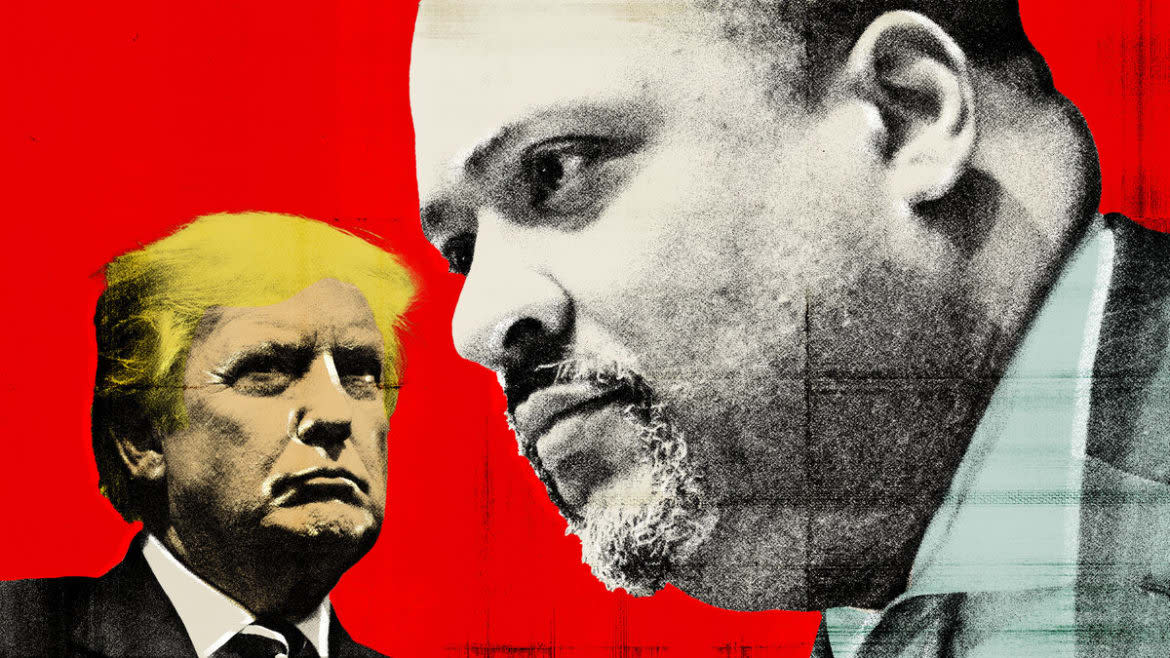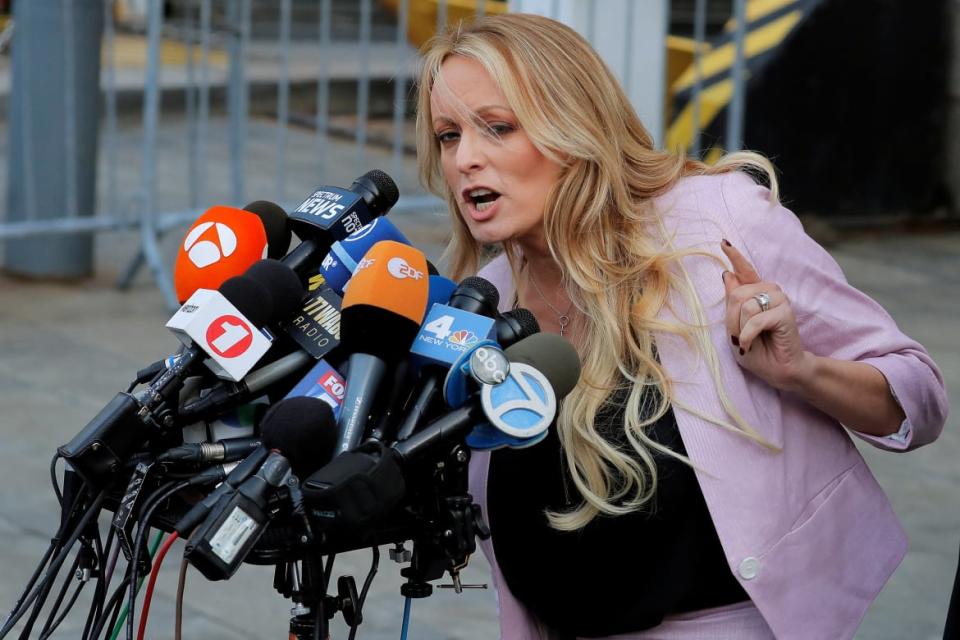Alvin Bragg’s Case Against Trump Is Stronger Than You Think

- Oops!Something went wrong.Please try again later.
- Oops!Something went wrong.Please try again later.
Former President Donald J. Trump just can’t shake Manhattan District Attorney Alvin Bragg off him. While Trump is on the verge of successfully delaying his federal criminal prosecutions until well into the red zone of the 2024 election, or even after the election, the New York state election interference trial is now scheduled to start on March 25. The case is a strong one and will have excellent jury appeal—especially to a jury drawn from a savvy and mostly liberal Manhattan jury pool. Here’s why so much of the criticism about Bragg’s prosecution lacks merit.
The Manhattan District Attorney has brought 34 felony counts against Trump for falsifying business records to cover up the fact he made “hush money” payments to actress Stormy Daniels to try to stop her from going public with their affair—this on the heels of Trump’s well-publicized comments to Access Hollywood where he bragged about grabbing women by their genitals and how he sought to come onto a married woman.
The charges of falsifying business record are felonies, rather than misdemeanors, because they are alleged to have been done to cover up another crime—namely, election interference. The prosecution theory is that Trump was desperate to keep Daniels quiet because her revealing the affair—in conjunction with the Access Hollywood tape—would hurt Trump’s chances in the 2016 presidential election.
Misplaced criticism of Bragg’s case coalesces around two areas of supposed weakness: legal arguments that the case should be removed or that it’s preempted by federal law and weak evidence in the form of witnesses former Trump lawyer Michael Cohen and Daniels.
Trump’s arguments for removal to federal court revolve around his convoluted and internally contradictory claim that the case should only be heard in federal court because he was acting as a federal officer and/or that the federal court needs to assert jurisdiction to protect him against a politically motivated prosecution.
Trump’s argument that he is an officer of the United States clash with his own argument that he is not an officer of the United States and therefore cannot be disqualified from the Presidency under the Disqualification Clause of the 14th Amendment because that provision applies only to officers of the United States.
It’s worth noting that Trump co-defendants failed at their attempts to remove their Georgia election interference cases brought by Fani Willis, which may have caused Trump to give up his own attempt to remove that case based on the federal officer theory. Trump’s arguments for removal to federal court were rejected by the federal court which found that that he was an officer of the United States and that his alleged actions were not official acts of a president.
Trump’s argument for preemption fared no better. The preemption argument rests upon Trump’s reasoning that Bragg’s reliance upon a violation of federal election law as the crime being covered up meant that federal election laws “preempted” any state charges. That argument also was rejected by the court for the simple reason that federal election law does not preempt New York state criminal violations.
Naturally we can expect Trump, his supporters, as well as commentators anxious to promote themselves by taking contrarian positions, will continue to endorse these supposed weaknesses in the case. But here’s what is important to remember: those arguments are all moot for now until and if Trump is convicted. If he is convicted, then he may again raise them on appeal but until then any regurgitation of the criticisms are just wasted breath. The case is going to trial and criticisms of the prosecution’s legal theories now have zero relevance.

Adult-film actress Stephanie Clifford, also known as Stormy Daniels, speaks as she departs federal court in Manhattan.
The “weak evidence” criticisms also will likely be shown up as uninformed during the trial. It’s become a cliché in media to disparage Cohen as a flawed witness due to his convictions and loquacious nature. But those views ignore the fact that cooperating witnesses with prior convictions and other “baggage” are used every day by prosecutors across the country and the Manhattan DA’s office is hardly relying solely on Cohen.
Rather—like so many of the white-collar cases that the office is known for (and many of the far more complex than this one)—the spine of the case is in the paper trial of the money, i.e., Bragg will be bringing the receipts to trial and its those “receipts” that Cohen will be corroborating through his testimony. He has been remarkably consistent about the payments to Stormy Daniels throughout the years. Moreover, in a remarkable poke in the eye to critics of Cohen’s credibility, Judge Arthur Engoron specifically stated that “Michael Cohen told the truth” in Engoron’s opinion finding Trump liable for fraud to the tune of over $350 million dollars.
Criticizing the case because it involves money paid to Daniels is not only weak but also smacks of misogyny. Dismissing Daniels’ narrative by reducing her to the category of “porn star” is understandable when coming from Trump—a man found liable for rape—but inexcusable when repeated as a supposed criticism of the case. Sex is always an appealing angle whether in commercials, true crime or the porn industry, but the fact that a witness in court works in a sex-related industry or even the sex trade has no place in assessing their credibility.
As a former sex crimes prosecutor who faced the challenges of prosecuting sexual abuse committed against women and children who were often victims of the sex trade industry, I know firsthand that credibility has nothing to do with what you do for a living or how you may have been sexually exploited or abused. As a trial lawyer, I’ll take the credibility and jury appeal of Daniels over the credibility of Trump as a witness any day of the week.
The Daniels story is the strongest aspect of Alvin Bragg’s case. Why? Because it will be very easy for a jury to understand that Trump wanted to conceal his affair with an actress known for starring in adult films at a time he was worried about his voter appeal to women. Really, it’s one of the oldest stories in the world: a rich man wanted to buy silence. The jury will get that.
Shan Wu is a former federal prosecutor who served as counsel to Attorney General Janet Reno.
Get the Daily Beast's biggest scoops and scandals delivered right to your inbox. Sign up now.
Stay informed and gain unlimited access to the Daily Beast's unmatched reporting. Subscribe now.

